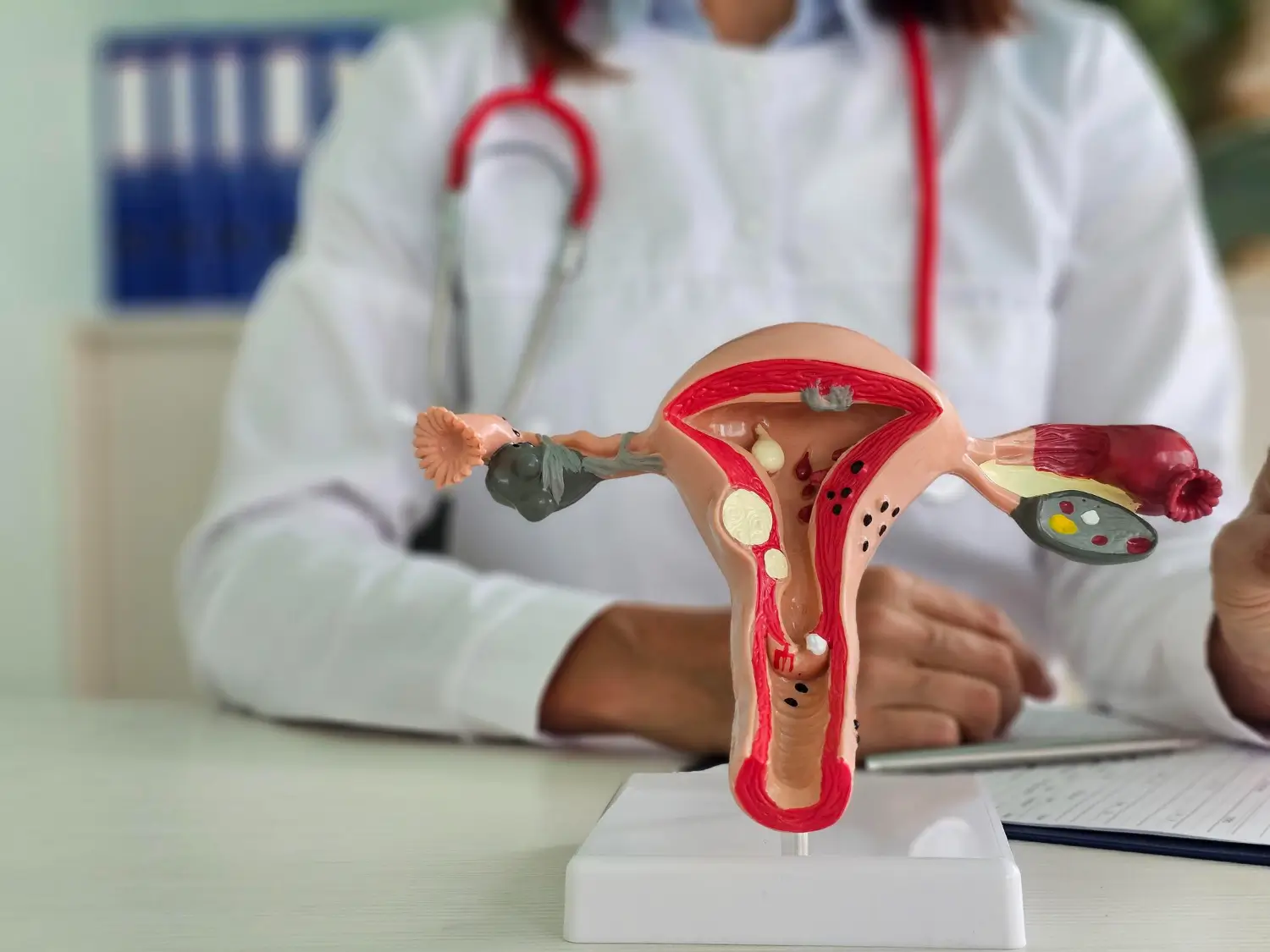Did you know that the average woman spends about seven years of her life menstruating? While menstruation is a natural part of life, many women struggle with irregular cycles, heavy bleeding, or painful periods, leading them to seek effective solutions for relief. Among these options, hormonal contraceptives, including the popular Depo-Provera shot, have become a go-to choice for managing menstrual health.
Depo-Provera is an injectable form of medroxyprogesterone acetate that works by suppressing ovulation, often causing menstrual changes such as lighter periods or even complete cessation of menstruation over time. While many welcome this side effect, it naturally raises important questions about the long-term effects and whether this contraceptive is the right fit for everyone.
In this article, we’ll explore how the Depo shot affects your period, its mechanism of action, potential benefits, and possible risks—helping you make an informed decision about this widely used birth control method.
Key Takeaways
- Depo-Provera commonly causes irregular bleeding during the first 6 to 12 months, including spotting, heavier or lighter flow, and changes in cycle frequency.
- Amenorrhea (absence of periods) occurs in about 50% of users after one year and is a reversible, generally harmless effect of Depo-Provera.
- Menstrual suppression through Depo-Provera can provide therapeutic benefits such as reducing symptoms of endometriosis, anemia, and menstrual migraines.
- Persistent or severe menstrual irregularities, including heavy bleeding or pain, warrant further medical evaluation to rule out other conditions.
- Open communication with healthcare providers and adherence to monitoring can help manage side effects and ensure Depo-Provera is a safe and effective contraceptive choice.
About: Medical Spa RX provides medical practices with premium products at the best prices. If you’re looking to buy Depo-Provera online for your practice, the sales representatives at Medical Spa RX can give you guidance.
What to Expect: Bleeding Patterns in Early Depo-Provera Use
During the first few months of Depo-Provera use, experiencing irregular bleeding is common. This can include spotting, prolonged periods, or even a heavier flow than usual. These changes happen as the body adjusts to medroxyprogesterone, which suppresses ovulation and alters the uterine lining.

While bleeding patterns often become lighter and more predictable over time, early cycles can be quite irregular and unpredictable. Though there is no strict Depo-Provera age limit, younger users should be monitored carefully, especially for potential impacts on bone density.
Here’s what you might see in the first 6 to 12 months:
- Spotting lasting several days or weeks
- Lighter or heavier bleeding than your usual period
- Bleeding after sex or physical activity
- Periods are coming more or less often than normal
These bleeding patterns are generally not a cause for concern. However, if you experience very heavy bleeding or severe pain, your healthcare provider may investigate other possible causes to ensure your health and safety.
Amenorrhea on Depo-Provera: How Common Is It?
Amenorrhea, or the absence of menstrual periods, is a frequent and expected outcome for many long-term Depo-Provera users. Research indicates that about 50% of women stop menstruating after one year of consistent injections, with this figure rising to 70% or more by the second year.
This effect results from Depo-Provera’s suppression of ovulation combined with thinning of the endometrial lining, making bleeding less likely to occur. For many users, amenorrhea is a welcome relief, especially for those suffering from heavy or painful periods.
Key points about amenorrhea on Depo-Provera:
- Usually begins after the first few injections
- Not all users will experience complete cessation of bleeding
- It is reversible—periods typically resume within 6 to 18 months after stopping the shot
- The absence of menstruation is not harmful and is considered a known side effect
Understanding this helps users set realistic expectations about their menstrual cycles while using Depo-Provera.
Therapeutic Benefits of Menstrual Suppression With Depo-Provera
Menstrual suppression through Depo-Provera is often more than just a side effect; it can provide significant therapeutic benefits, especially for individuals with problematic menstrual symptoms. For women experiencing heavy, painful, or prolonged periods, the reduction or elimination of bleeding can dramatically improve quality of life.

Some important benefits include:
- Reduces symptoms of endometriosis by limiting monthly hormonal fluctuations
- Decreases the risk of anemia by minimizing monthly blood loss
- Alleviates menstrual migraines that are triggered by hormonal changes
- Improves comfort for individuals with menstrual-related disorders, such as fibroids
- Supports individuals with intellectual or physical disabilities who may struggle with menstrual hygiene
- Reduces menstrual-related absenteeism from work, school, or other activities
For these reasons, many healthcare providers recommend Depo-Provera not only as a contraceptive but also as a treatment for various menstrual health issues.
When Menstrual Irregularity Requires Further Evaluation
While irregular bleeding is a common side effect of Depo-Provera, especially early on, some patterns may require closer medical evaluation. It’s important not to assume that all bleeding changes are normal. Here are signs that warrant a healthcare consultation:
- Heavy bleeding that soaks through one pad or tampon per hour for several hours
- Bleeding that lasts more than 14 days in a row
- Bleeding after sexual intercourse, especially if it’s persistent
- Severe cramping is not typical of your usual cycle
- Bleeding that starts suddenly after months of no periods
- Signs of anemia, such as fatigue, dizziness, or shortness of breath
In these cases, your provider may order blood tests, perform a pelvic exam, or recommend imaging studies to rule out other causes such as fibroids, polyps, or infections.
Conclusion
Understanding how Depo-Provera influences your menstrual cycle can help set realistic expectations. While many users appreciate having fewer or no periods, others may find the irregular bleeding challenging. It is important to discuss your menstrual history and personal preferences with your healthcare provider before starting treatment.
Tracking changes and reporting any concerns allows your provider to tailor your care and make adjustments if needed. With proper support, education, and monitoring, Depo-Provera remains an effective and manageable contraceptive option for individuals seeking convenient, long-term protection.
FAQs
1. How does Depo-Provera work as birth control?
Depo-Provera prevents pregnancy by stopping ovulation, thickening cervical mucus, and thinning the uterine lining.
2. How often do I need to get the Depo shot?
You need an injection every 12 to 13 weeks (about every 3 months) to maintain protection.
3. How soon does Depo-Provera start working?
If given within the first 5 days of your cycle, it begins working immediately. Otherwise, use backup birth control for 7 days.
4. Can I get pregnant after stopping Depo-Provera?
Yes, but it may take 6 to 18 months for fertility to return after your last injection.
5. What are the common side effects of Depo-Provera?
These include weight gain, irregular bleeding, headaches, mood changes, and decreased bone mineral density over time.
6. Is Depo-Provera safe for long-term use?
While generally safe, long-term use can affect bone health. Your doctor may recommend taking breaks or switching methods after a few years.
7. Who should avoid using Depo-Provera?
It may not be suitable for those with a history of unexplained vaginal bleeding, certain cancers, or bone disorders.
References
UNICEF. FAST FACTS: Nine things you didn’t know about menstruation. https://www.unicef.org/press-releases/fast-facts-nine-things-you-didnt-know-about-menstruation
Panda N, Desaraju S, Panigrahy RP, et al. Menstrual health and hygiene amongst adolescent girls and women of reproductive age: a study of practices and predictors, Odisha, India. BMC Women S Health. 2024;24(1). doi:10.1186/s12905-024-02894-7
Wigington S. Depo-Provera: an injectable contraceptive. Nurs Times. 1981;77(42):1794-1798.
Holland K. Depo-Provera Shot bleeding and spotting: How to stop it. Healthline. Published February 18, 2016. https://www.healthline.com/health/birth-control/depo-shot-bleeding-how-to-stop-it





















